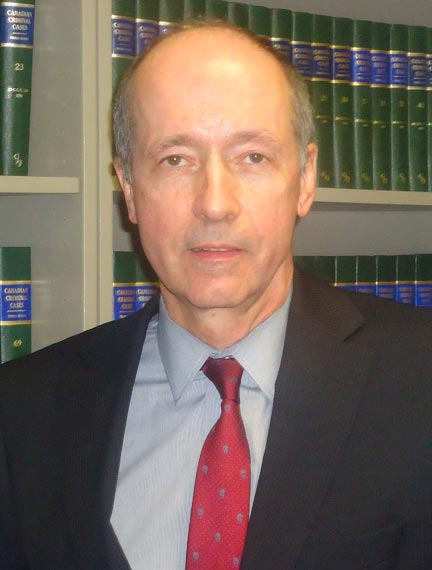The Alberta government doesn’t need an official review its bail process to know lawyers, not police, should represent the Crown at bail hearings, says an Edmonton lawyer.

“The answer is plain as day,” says criminal lawyer Tom Engel. “The best practice would be to have Crown prosecutors representing the Crown on bail hearings.”
Engel’s comments come after the Alberta government
announcement yesterday that it would launch a review of its bail process as part of a recommendation from a report that looked into the Crown’s involvement in the Shawn Rehn matter.
Rehn shot two RCMP officers in January, killing Const. David Wynn and injuring Auxiliary Const. Derek Bond. Rehn, who later killed himself, was out on bail at the time of the incident.
“He had an extensive criminal record and outstanding warrants at the time of the shooting,” the Alberta government said in a press release. “In the months leading up to the shooting, a police officer attended Rehn’s bail hearings without a Crown prosecutor in front of a Justice of the Peace, a situation which happens commonly in first appearances.”
Among other things, the review will look into who should conduct bail hearings.
“The death of Const. Wynn and other recent tragic events demonstrate why we need to be vigilant in finding ways to do things better,” said Kathleen Ganley, Alberta’s minister of justice and solicitor general. “It is my hope that this review will identify improvements to the bail system that will result in safer communities for our law enforcement officers and all Albertans.”
Engel says if the government wants to change the system, it should be prepared to spend a lot more.
“It’s just a matter of more money,” he says.
D’Arcy DePoe, past president of the Criminal Trial Lawyers’ Association, says police officers have represented the Crown before justices of the peace for many years, and “for the most part, it has worked pretty well.”
DePoe says the current system ensures efficiency since accused individuals get a bail hearing almost immediately. The system also reduces incarceration and overcrowding in prisons, he adds.
After the January shooting, some have complained that not all information was put before the justice of the peace at Rehn’s bail hearing. But that’s not uncommon, according to DePoe, who says that is often the case when the Crown and defence present a joint submission.
The bail hearing was “ordinary” in that sense and Rehn was facing relatively minor charges, adds DePoe.
“It’s easy in retrospect to say, ‘If [only] he had been kept in, the tragedy wouldn’t have happened.’ But if that man was a ticking time bomb, that could have happened the next time he was released or he would have done something else.
“It’s very difficult to criticize after the fact.”

 “The answer is plain as day,” says criminal lawyer Tom Engel. “The best practice would be to have Crown prosecutors representing the Crown on bail hearings.”
“The answer is plain as day,” says criminal lawyer Tom Engel. “The best practice would be to have Crown prosecutors representing the Crown on bail hearings.”